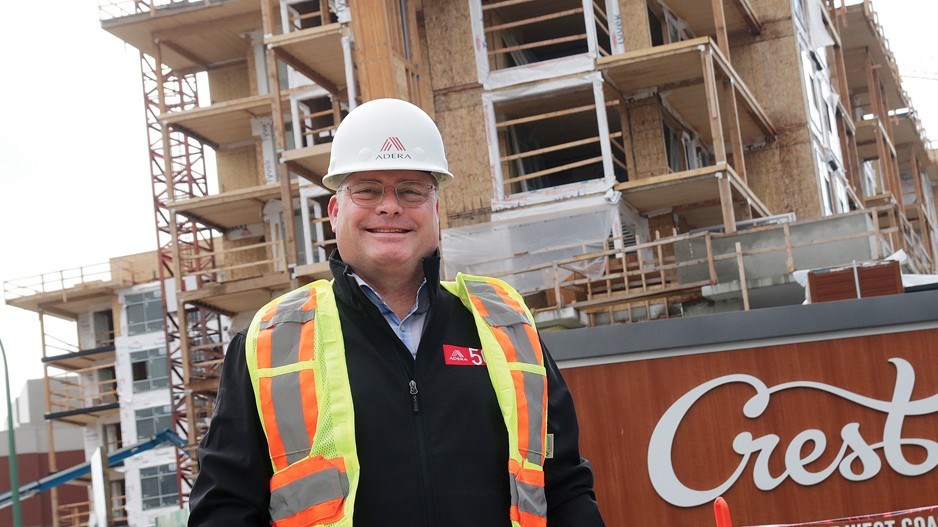The largest mass timber developer in B.C. has no problem with the controversial ‘net-zero’ building code brought in this month by two North Shore municipalities.
On June 1, the City of North Vancouver and West Vancouver became the first B.C. municipalities to legislate Step 5 of the B.C. Energy Code, which mandates that residential buildings must produce more energy than they use, resulting in buildings with net-zero energy requirements.
City of Vancouver council recently voted down a recommendation from its city manager to delay implementation of its own net-zero code for a year to help clear a backlog of building permits.
Vancouver’s zero-emissions plan calls for new buildings three storeys and below to electrify heating and domestic hot water appliances and to include better insulation and windows in their construction starting January 1, 2022.
The Homebuilders Association Vancouver (HAVAN) and the Canadian Institute of Plumbing and Heating (CIPH) had supported the city staff’s recommendation to streamline permit applications, even if it meant delaying climate action.
Pointing to “hard choices,” HAVAN CEO Ron Rapp said the City of Surrey cut the average time for processing of a single-family home permit to 10 weeks, just a little more than the time it currently takes to get an appointment to make a permit application in Vancouver.
CIPH had lobbied the city to delay its rollout of a zero-emissions building plan for two years, claiming natural gas should have a place in the city’s future as it moves to reduce emissions.
However, Eric Andreasen, vice-president of marketing and sales for Adera Development Corp., which recently built and sold out its largest mass timber condominium project, a 179-unit development in North Vancouver City, said new homes that are highly energy efficient are the way of the future.
“Climate change is really happening,” Andreasen said, saying the company supports North Vancouver’s move to B.C.’s highest energy standard.
A 2019 HAVAN study found that reaching Step 5 of the BC Energy Code would add between $22,000 and $48,000 onto the price of a new detached house, and thousands of dollars more onto the cost of a new condominium.
But homebuyers seem willing to pay to battle climate change.
Crest, Adera’s North Vancouver project, sold out, despite prices cresting over $1 million for larger units. The Adera also sold out a 72-unit mass timber condo complex in Coquitlam earlier this year.
Adera uses SmartWood, manufactured in B.C., in its cross-laminated mass timber, which the company claims is both sustainable and carbon negative.
Studies of mass timber projects have shown a reduction of carbon pollution by 25% to 45% or more during construction compared with concrete projects. The buildings are also more energy efficient, with wood being a natural insulator.
The downside is that the cost of lumber is now double the price it was a year ago, though down from record prices reached in April of this year. A January 2021 study by the Journal of Building Engineering found that construction cost of timber building as six-storey is 6.43% higher than a similar concrete building, so rising lumber prices could negate any wood advantage.
Adera largely dodged the recent lumber price increases by securing delivery contracts early, Andreasen said, but he added the company tracks lumber prices on a daily basis. “We have to be very proactive,” he said.




